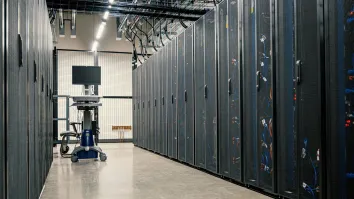
Brace yourselves for a 5% hike in solar project costs in India
No thanks to the new GST rates.
India’s Goods and Services Tax (GST) rates for solar components have been finalized, government agency sources told Mercom, with GST rates expected to be 18 percent or more for some solar components and services. Solar modules will get a rate of 5 percent rate.
However, government agencies still seem unsure about how the ratio of goods to services will be calculated.
Project developers have been worried about the increase in project costs due to the expected increase the GST will cause in operations and maintenance (O&M), component, and civil and work contract costs. This uncertainty surrounding actual GST rates for various solar components and services is a big concern for solar companies and state agencies and has caused a freeze in tender and auction activity and delays in new project activity.
Here's more from Mercom Capital Group:
An official from the Ministry of New and Renewable Energy (MNRE) related to research and development acknowledged the confusion to Mercom, saying “the MNRE is soon going to conduct a workshop where all officers will be educated about the effects of GST on various components utilized in the renewable energy sector as there is confusion regarding the various tax slabs and the goods registered therein.”
Earlier, it was expected that the GST for all solar equipment, modules, and other systems utilized in solar projects would be just 5 percent, but this is not the case. Now it appears there will be different GST rates for various project components.
A Ministry of Power official told Mercom, “the various rates differ from 5 percent to 18 percent to 28 percent for the renewable energy sector.” The official further stated that, “for certain imports, developers might even have to pay IGST (International GST) and now a tax on services at the rate of 18 percent will be applicable.”
Another official at MNRE told Mercom, “overall there will be a 5 percent increase in project costs, not more than that.” The official went on to say, “if you look at the various rates for all goods registered under GST, you will notice that the cost of metal, etcetera, is going down. Most equipment and structures utilized in project development need metals, alloys, and the like – if there is a marked reduction in the cost of raw materials, then the cost of the product will be low even if the tax on it is a bit high.”
The MNRE official further said, “on imported inverters, there will be a 5 percent IGST charged on top of the 18 percent GST and this (IGST) may even include certain inverters utilized in solar projects.”
The MNRE official also said that GST will play a stabilizing role in the sector. “Solar tariffs have fallen from over Rs.17/unit to below Rs.2.50/unit within a few years, now GST will play the role of leveler and will not allow such a steep decline to happen so suddenly, as project costs will slightly spike up resulting in continued healthy competition among the various developers and EPC contractors.”
Official clarification on the effect of GST rates on solar is yet to come; this update provides some clarity as to where things stand as of now.


















 Advertise
Advertise




